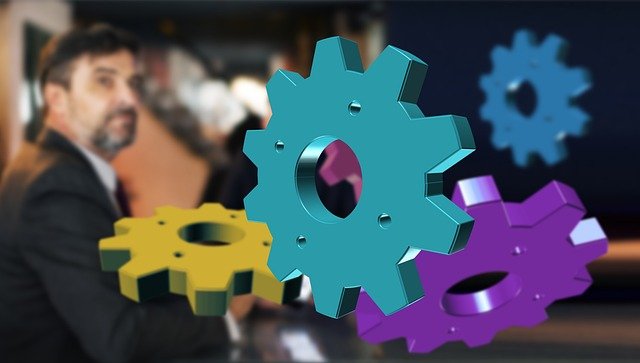Microlearning: The Future of Professional Development
Bite-sized education revolutionizes workplace learning, offering focused skill acquisition in minutes. As attention spans shrink and demands on time increase, microlearning emerges as a powerful tool for career growth. This innovative approach transforms how professionals stay competitive, adapt to rapid changes, and excel in their roles. Discover how small lessons lead to big career impacts.

The shift towards microlearning reflects broader societal changes in how we consume information. With the proliferation of smartphones and social media, people have grown accustomed to quick, on-demand content. This trend has naturally extended to the professional realm, where time is at a premium and the need for continuous learning is more pressing than ever. Companies are increasingly recognizing the value of microlearning in keeping their workforce agile and up-to-date in a rapidly evolving business environment.
The Science Behind Microlearning’s Effectiveness
Microlearning’s effectiveness is rooted in cognitive science and learning theory. Studies have shown that the human brain is better at processing and retaining small pieces of information rather than large chunks. This aligns perfectly with the microlearning model, which delivers content in bite-sized portions that are easier for the brain to absorb and remember.
Furthermore, microlearning leverages the spacing effect, a psychological phenomenon where information is more effectively learned when studied in multiple, spread-out sessions rather than in a single, long session. By presenting information in short bursts over time, microlearning reinforces knowledge retention and reduces the forgetting curve. This approach also caters to the limited attention spans of modern learners, ensuring higher engagement and completion rates compared to traditional learning methods.
Implementing Microlearning in Your Career Development
Incorporating microlearning into your professional growth strategy can yield significant benefits. Start by identifying key skills or knowledge areas you want to develop. Look for platforms or resources that offer microlearning content in these areas. Many online learning platforms now provide courses structured in microlearning formats, allowing you to learn at your own pace.
Create a daily or weekly routine for engaging with microlearning content. This could be as simple as dedicating 10-15 minutes each day to watch a video, complete a short quiz, or read a concise article on a relevant topic. Consistency is key in microlearning; regular, small doses of learning are more effective than sporadic, lengthy sessions.
Consider using microlearning apps that send push notifications or reminders to keep you on track with your learning goals. These apps often gamify the learning experience, making it more engaging and enjoyable. Remember to apply what you learn immediately in your work context to reinforce the knowledge and skills acquired.
Microlearning for Soft Skills Development
While microlearning is often associated with technical skills, it’s equally effective for developing soft skills crucial for career advancement. Communication, leadership, emotional intelligence, and problem-solving are all areas where microlearning can make a significant impact. These skills are often best developed through practice and reflection, which aligns well with the microlearning approach.
For instance, a microlearning module on active listening might include a short video explaining the concept, followed by a quick exercise to practice the skill in a real-world scenario. This immediate application helps learners internalize the concept more effectively than traditional methods. Over time, consistent exposure to these micro-lessons can lead to substantial improvements in soft skills, enhancing overall professional capabilities.
The Role of Microlearning in Organizational Training
From an organizational perspective, microlearning offers numerous advantages. It allows companies to provide targeted, just-in-time training that addresses specific needs without taking employees away from their work for extended periods. This approach is particularly beneficial for onboarding new employees, rolling out new processes or technologies, and ensuring compliance with industry regulations.
Microlearning also facilitates a culture of continuous learning within organizations. By making learning accessible and manageable, it encourages employees to take ownership of their professional development. This, in turn, can lead to increased job satisfaction, improved performance, and higher retention rates. Moreover, the modular nature of microlearning content makes it easier for organizations to update and customize their training materials, ensuring that the workforce always has access to the most current and relevant information.
Challenges and Considerations in Microlearning
While microlearning offers numerous benefits, it’s not without challenges. One of the main criticisms is that it may oversimplify complex topics, potentially leading to a superficial understanding. To address this, it’s crucial to design microlearning content that builds upon itself, creating a comprehensive learning journey rather than isolated bits of information.
Another consideration is the need for a balanced approach. While microlearning is excellent for certain types of knowledge and skill acquisition, it may not be suitable for all learning objectives. Some topics require deeper, more extended study and practice. Therefore, the most effective learning strategies often combine microlearning with other educational approaches to provide a well-rounded learning experience.
The Future of Microlearning in Career Development
As technology continues to evolve, so too will the applications of microlearning in professional development. Virtual and augmented reality technologies are already being integrated into microlearning experiences, offering immersive, hands-on learning opportunities in bite-sized formats. Artificial intelligence and machine learning algorithms are also being employed to personalize microlearning content, adapting to individual learning styles and preferences for maximum effectiveness.
The future of work is likely to see an even greater emphasis on continuous learning and adaptation. In this context, microlearning is poised to play a crucial role in helping professionals stay relevant and competitive. By providing flexible, accessible, and targeted learning opportunities, microlearning empowers individuals to take control of their career development in an increasingly dynamic job market.
In conclusion, microlearning represents a paradigm shift in how we approach professional development and lifelong learning. Its ability to deliver focused, actionable knowledge in small doses aligns perfectly with the demands of modern work life. As we navigate an ever-changing professional landscape, embracing microlearning as a key strategy for career growth and adaptability will be essential. By mastering the art of learning in small steps, professionals can make significant strides in their careers, one micro-lesson at a time.






